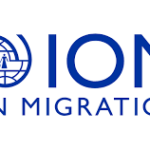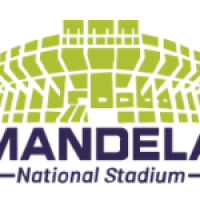IOM in South Sudan has a broad range of programming centered around three broad areas:
humanitarian coordination and support; humanitarian response and resilience; and
peacebuilding, transition and development. Humanitarian coordination and support includes
leading/co-leading the Camp Coordination and Camp Management (CCCM) and Shelter and
Non-Food Items (NFI) Clusters, Displacement Tracking Matrix (DTM), Water, Sanitation and
Hygiene (WASH) and management of WASH and Shelter and NFI core-pipelines, humanitarian
hubs and common transport services. Humanitarian response and resilience includes CCCM,
WASH, Shelter & NFI, health, protection, gender equality and inclusion, mental health and
psychosocial support and the management of a Rapid Response Fund. Under peacebuilding,
transition and development, IOM South Sudan implements programming on housing, land and
property issues, transition and recovery, transhumance conflict prevention, community-based
violence reduction, community development and migration management.
As part of its community development portfolio, IOM is implementing a World Bank- funded
project (Enhancing Community Resilience Project – ECRP) that seeks to address key gaps in
basic service delivery and strengthen local institutions capacity to better manage
inter-communal tensions and resources across 12 counties in South Sudan. The project aims to
contribute to the building of a national local-level institutional structure for governance and
service delivery, in line with the Local Government Act (LGA) 2009.
Under the overall supervision of the Chief of Mission (COM), the direct supervision of the Senior
Program Coordinator (Community Resilience and Disaster Risk Management), and in close
collaboration with the relevant IOM Technical Leads, the ECRP Coordination and Advisory
Team, the successful candidate will provide technical guidance and support to the infrastructure
component of the Enhancing Community Resilience Project (ECRP).
Responsibilities:
1. Coordinate the technical assessment, identification of technical alternatives, design,
implementation, and monitoring of the activities required for the successful completion for the
Infrastructure Component of the ECRP Project.
2. Check that the Infrastructure adheres to scope, time, and budget according to Infrastructure
Compliance Guidelines, Standard Operating Procedures (SOPs), Post Descriptions (PDs), and
strategy of the ECRP Project and bring issues of non-compliance to the attention of the
supervisor.
3. Check that activities are performed in accordance to the specifications in the project proposal
and notify the supervisor of any pertinent change requests in a timely manner.
4. Implement project work plans and inform the supervisor of any delay or workaround required
for timely completion of activities.
5. Monitor project budgets, expenditures and burn rates according to internal and donor
requirements.
6. Monitor project implementation by undertaking regular visits to the areas of operation, and
checking that materials and resources are being properly utilized in compliance with design and
technical specifications. Follow up on scheduling with contractors and prepare completion
certificates.
7. Coordinate procurement, checking alignment with approved specifications or Bills of
Quantities (BOQs), in close collaboration with procurement and logistics assistants at Juba and
Sub-office level, to facilitate the procurement and delivery of the required materials and items to
the respective sites in a timely manner.
8. Liaise with counterparts and relevant stakeholders. Draft progress and other required reports.
Internally, submit weekly and monthly reports to the Program Coordinator (ECRP) indicating
progress, constraints and requirements for project completion. Ensure that project data and
information is archived and shared appropriately.
9. Supervise and coordinate the work of relevant Infrastructure staff, provide inputs for
performance evaluations, and assist in resolving team conflicts.
10. Abide by the principles of a respectful office environment free of harassment and retaliation,
and that promotes the prevention of sexual exploitation and abuse (PSEA).
11. Perform such other duties as may be assigned.
Required Qualifications and Experience:
Education
• Master’s degree in Civil Engineering, Environmental Engineering, or a related field from an
accredited academic institution with two years of relevant professional experience; or
• University degree in the above fields with four years of relevant professional experience.
Experience
• Experience of Water, Sanitation and Hygiene (WASH) principles in humanitarian setting;
• Experience in working on community-led infrastructure management, governance, and
sustainability;
• Experience in humanitarian settings;
• Experience of working in South Sudan or similar protracted crisis-affected countries would be
highly desirable;
• Experience in designing and implementing the technical infrastructure components of the
WASH project; and,
• Experience managing and mentoring teams and in promoting achievement of project
objectives.
Skills
• Strong knowledge of Water, Sanitation and Hygiene (WASH) principles in humanitarian
setting;
• Ability to meet deadlines and deliver under pressure;
• Ability to produce thorough high-quality work within a tight timeframe;
• Demonstrated capacity strengthening skills and on-the-job training;
• Computer literacy in Microsoft Office Suite (MS Word, Excel, and PowerPoint); and,
• Solid organizational skills: the ability to be flexible and work well under pressure in a
fast-paced and detail-oriented team environment.
Languages
IOM’s official languages are English, French, and Spanish.
For this position, fluency in English is required (oral and written). Working knowledge of Arabic
is an advantage.
Proficiency of language(s) required will be specifically evaluated during the selection process,
which may include written and/or oral assessments












